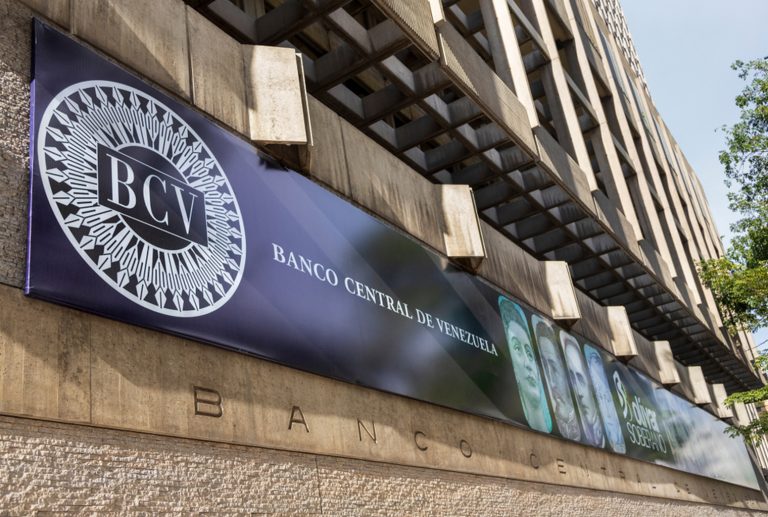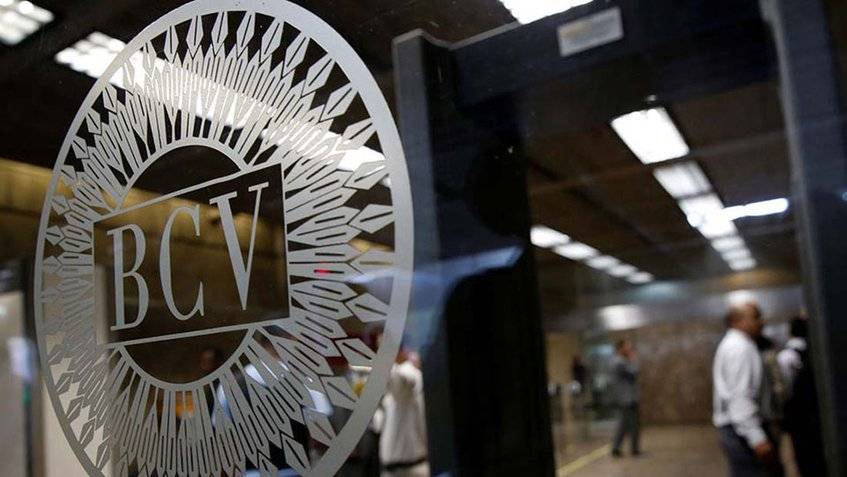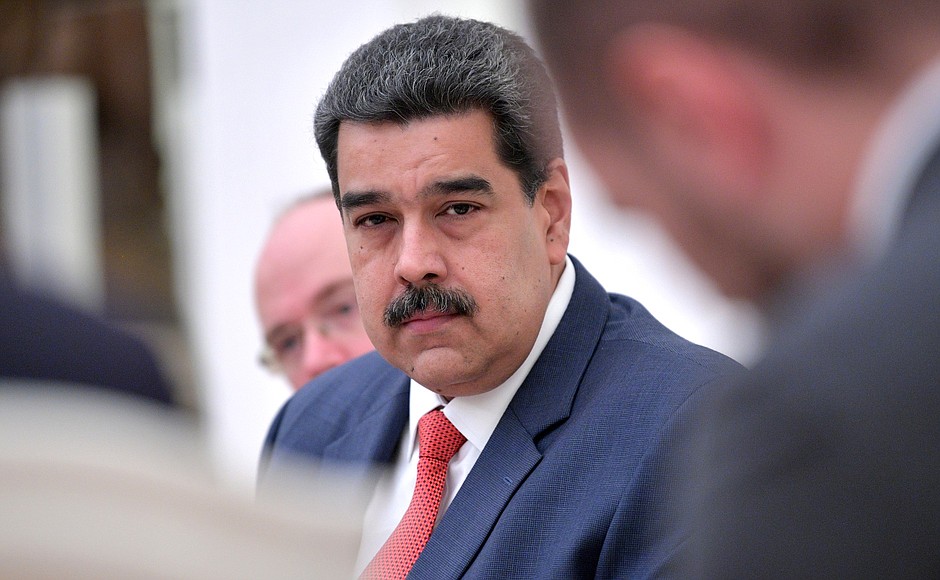
Various reports reveal Venezuela’s central bank is allegedly contemplating hoarding a variety of cryptocurrencies like BTC within its internal reserves. The state-operated gas company Petroleos de Venezuela SA (PDVSA) has asked to send BTC and ETH payments to Banco Central de Venezuela’s (BCV) vaults to pay for oil and gas operations.
Also read: Maduro’s Petro Becomes More Accessible, but Scrutinized by Venezuelans
Venezuela’s Central Bank Plans to Hold Cryptocurrencies Within Internal Reserve System
Sources reveal that Venezuela’s central bank plans to accumulate a stash of bitcoin and ethereum and the bank is currently contemplating methods on how to secure the cryptocurrencies within its internal reserve system. One report states that “four people with direct knowledge of the matter” have detailed that the oil and gas company, PDVSA, has asked the BCV if the entity can send payments using currencies like BTC and ETH. The sources who queried BCV staffers with questions have asked to remain anonymous. According to the informants, the BCV’s reserves are at a three-decade low at just above $7 billion and the central bank is researching schemes on how to secure the digital assets within the BCV’s reserve system.
 The central bank of Venezuela maintains the fixed exchange rate for the sovereign bolívar and holds the country’s internal reserves.
The central bank of Venezuela maintains the fixed exchange rate for the sovereign bolívar and holds the country’s internal reserves.
The informants claim they don’t know how much BTC or ETH the PDVSA actually owns and or how it came to obtain the digital assets. But a slew of reports has elaborated on how the Venezuelan government has been gathering cryptocurrencies in order to hoard them and use them to bypass U.S. and international trade sanctions. Last February Pedro Peroza wrote a number of informative articles concerning the National Superintendency of Crypto Assets and Related Activities (Sunacrip) operations. Peroza believes Maduro’s regime has already been stockpiling digital currencies via the “collection of taxes in cryptocurrency, for that a Law was approved in the ANC (National Assembly Madurista).” Moreover, Maduro’s petro cryptocurrency is all part of the plan. Sunacrip participates in monitoring and licensing exchanges, overseeing state-approved mining operations, and promotes petro adoption across the country. Besides collecting taxes in bitcoin the petro serves two objectives according to Peroza:
- Devalue the Sovereign Bolivar.
- Sell petro in exchange for bitcoin and litecoin.
 Nicolás Maduro and the United Socialist Party of Venezuela introduced the petro, the first nation-state issued cryptocurrency. Many reports detail that the petro is simply used to obtain legitimate digital assets like bitcoin and litecoin while also using the digital currency to bypass U.S. sanctions.
Nicolás Maduro and the United Socialist Party of Venezuela introduced the petro, the first nation-state issued cryptocurrency. Many reports detail that the petro is simply used to obtain legitimate digital assets like bitcoin and litecoin while also using the digital currency to bypass U.S. sanctions.
Maduro’s Regime Has Various Methods Available to Stockpile Bitcoin
Maduro and the United Socialist Party of Venezuela have been accused of circumventing financial blockades imposed by the U.S. government according to local reports in July. Investigators revealed that Maduro’s regime allegedly used the Maiquetía International Airport and Sunacrip to convert airline taxes into BTC. Those reports suggested the Venezuelan government has cryptocurrency accounts in China, Russia, and Bulgaria. Sunacrip also announced that cryptocurrencies and the petro could be used to buy airline tickets and amenities from Conviasa Airlines as well. Sunacrip Superintendent, Joselit Ramírez, further explained that the Administrative Service of Identification Migration and Foreigners will accept digital currencies for passports and the National Institute of Transit and Land Transportation will accept cryptos for licenses, fines, plates, and titles. Sunacrip even introduced a payment system called Petro Pago, but citizens say the point-of-sale (POS) infrastructure is meant to collect bitcoin and more valuable digital assets.
 Sunacrip’s crypto payment system called Petro Pago
Sunacrip’s crypto payment system called Petro Pago
On September 14, a girl who emigrated from Venezuela told our newsdesk that the petro is really only for show and government officials are the only ones who use it to bypass the international trade row. “Nobody uses the petro and only people close with government use it to skip out on U.S. sanctions — Sunacrip is really only for miners — they have installed crypto point-of-sale (POS) systems around some stores, but the POS only accepts bitcoin, litecoin, and BNB, so if you have petros, you need to exchange that,” news.Bitcoin.com’s source declared. In fact, Sunacrip is in charge of mining operations in the country and any operation that’s not approved by Sunacrip is illegal. “The Digital Mining Administration’s objective is the planning, coordination, promotion, and execution of digital mining activities and associated processes, licensing and certificates,” Suncrip’s website explains.
 Sunacrip oversees the digital currency mining industry in Venezuela. Those who do not comply with Sunacrip are running illegal mining operations according to the National Gazette 41,575.
Sunacrip oversees the digital currency mining industry in Venezuela. Those who do not comply with Sunacrip are running illegal mining operations according to the National Gazette 41,575.
The sources who have been in touch with PDVSA staffers insist the entity won’t sell the coins on the open market due to international exposure but rather have the BCV hold it. This way the oil and gas company has a way to evade financial blockades after selling energy resources. Nearly all the past the reports stemming from Venezuela’s government, show valid signs of the regime and central bank hoarding digital assets like BTC. Maduro and his regime have created many different avenues to collect cryptocurrencies by using the airports, Sunacrip, and other state-run entities. Moreover, in September the state-owned Bank of Venezuela, the country’s largest financial institution has opened a cryptocurrency desk. Reports detail that Bank of Venezuela account holders now see a crypto wallet interface when they sign into their accounts online.
What do you think about Venezuela’s central bank and Maduro’s regime hoarding cryptocurrencies? Let us know what you think about this subject in the comments section below.
Image credits: Shutterstock, Banco Central de Venezuela, Pixabay, and Sunacrip.
Do you need a reliable Bitcoin mobile wallet to send, receive, and store your coins? Download one for free from us and then head to our Purchase Bitcoin page where you can quickly buy Bitcoin with a credit card.
The post Venezuela’s Central Bank Indicates Plans to Stockpile Bitcoin appeared first on Bitcoin News.